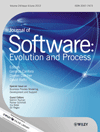
Journal of Software-Evolution and Process
metrics 2024
Shaping the Future of Software Methodologies
Introduction
The Journal of Software-Evolution and Process, published by WILEY, is a premier academic journal dedicated to advancing knowledge in the field of software evolution and methodologies. With an impact factor that places it in the Q2 quartile of software-related research, this journal is widely recognized for its rigorous peer-reviewed articles that explore the dynamics of software development, maintenance, and transformation. Addressing the challenges faced by software engineers and researchers, the journal seeks to provide innovative insights and solutions, fostering both theoretical understanding and practical applications. Since its inception in 2012, Journal of Software-Evolution and Process has contributed significantly to the academic community, featuring research that is highly relevant to contemporary trends and technologies in the software industry. For those committed to enhancing their expertise, this journal provides an invaluable resource via open access options.
Metrics 2024
 -
- 1.70
1.70 2.10
2.10 -
-Metrics History
Rank 2024
IF (Web Of Science)
JCI (Web Of Science)
Quartile History
Similar Journals
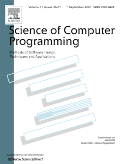
SCIENCE OF COMPUTER PROGRAMMING
Exploring Interdisciplinary Insights in Software DevelopmentScience of Computer Programming, published by Elsevier, is a leading journal dedicated to advancing knowledge in the fields of computer programming, computational theory, and software development. With a focus on interdisciplinary research that spans computational methodologies, information systems, and simulation modeling, this journal plays a vital role in disseminating innovative findings and fostering collaboration among experts in these dynamic areas. With a respectable impact factor and ranked in various Scopus Categories such as computational theory (Q3) and information systems (Q2), it provides a platform for high-quality scholarly articles that push the boundaries of programming science. Although currently not open access, the journal offers invaluable insights for researchers, professionals, and students alike, ensuring they are equipped with the latest advancements and methodologies to thrive in an ever-evolving technological landscape. The journal covers research from its convergence starting in 1981 and continues to welcome groundbreaking contributions as it looks forward to an exciting future through 2025 and beyond.

Journal of Object Technology
Catalyzing Innovation in Software Development PracticesJournal of Object Technology is a premier publication housed under the esteemed JOURNAL OBJECT TECHNOLOGY in Switzerland, dedicated to advancing the field of software engineering and technology. With a history of continuous publication since 2002, this journal serves as a platform for innovative research, critical reviews, and case studies that explore the nuances of object-oriented technologies and their applications in software development. Although currently categorized in the lower quartile (Q4), this journal's focus on relevant and emerging topics remains vital for researchers, professionals, and students alike, seeking to enhance their understanding of contemporary software-related issues. Addressing significant milestones and offering insights into future directions, the Journal of Object Technology plays an essential role in the evolving landscape of computer science, providing open access opportunities that ensure wide dissemination of knowledge. Situated at ETH Zurich, the journal is committed to fostering collaboration and dialogue among researchers worldwide, underscoring its importance within the global scholarly community.
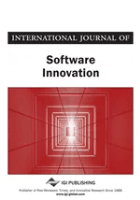
International Journal of Software Innovation
Transforming Ideas into Software Breakthroughs.The International Journal of Software Innovation, published by IGI Global, serves as a crucial platform for disseminating cutting-edge research in the field of software engineering and innovation. With its ISSN 2166-7160 and E-ISSN 2166-7179, this journal has a broad scope that encompasses multiple areas of computer science, including Artificial Intelligence, Computer Graphics and Computer-Aided Design, Computer Networks and Communications, Software, and Computer Science Applications. Since its inception in 2017 and continuing until 2024, the journal has established itself in Q4 quartiles across various categories, reflecting both emerging trends and foundational principles in software innovation. Although it does not currently follow an Open Access model, its findings are vital for researchers, professionals, and students aiming to understand and contribute to the evolving landscape of software technologies. Located in the United States at 701 E Chocolate Ave, Ste 200, Hershey, PA 17033-1240, this journal not only offers research insight but also encourages collaboration and knowledge sharing among scholars worldwide.
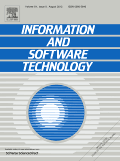
INFORMATION AND SOFTWARE TECHNOLOGY
Shaping the Future of Computer Science Applications and TechnologyINFORMATION AND SOFTWARE TECHNOLOGY, published by Elsevier, is a leading journal that stands at the forefront of the fields of software engineering, information systems, and computer science applications. Since its inception in 1970 and with a focus extending to 2025, this esteemed publication has made significant contributions to the discourse on technological advancements and innovations. In 2023, it has achieved a remarkable Q1 categorization across multiple domains, including Computer Science Applications, Information Systems, and Software, reflecting its excellence and relevance in the academic community. With Scopus rankings that place it in the top percentiles in its categories (85th, 83rd, and 83rd respectively), the journal serves as an essential platform for researchers, professionals, and students eager to disseminate and engage with cutting-edge research and developments. While it does not currently offer Open Access options, the knowledge curated within its pages remains invaluable for advancing the fields of information technology and software development.
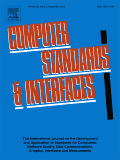
COMPUTER STANDARDS & INTERFACES
Navigating the Evolving Landscape of Computer Science.COMPUTER STANDARDS & INTERFACES is a prestigious journal published by Elsevier, dedicated to the intersection of technology, law, and standards in computing. With an impressive impact factor and categorized in the Q1 quartile across several relevant fields, including Computer Science Applications, Hardware and Architecture, and Software, this journal has established itself as a critical resource for researchers and professionals alike. Covering a comprehensive range of topics over its converged years from 1986 to 2025, it provides rigorous peer-reviewed articles and vital insights into the evolving landscape of computer standards. The journal's Scopus rankings affirm its significance with top percentiles in multiple categories, including a remarkable 12th rank in Social Sciences and Law. COMPUTER STANDARDS & INTERFACES welcomes contributions that push the boundaries of knowledge and foster discussions on best practices and innovations, making it an invaluable platform for students and seasoned researchers passionate about advancing the field.

SOFTWARE QUALITY JOURNAL
Bridging theory and practice for software success.SOFTWARE QUALITY JOURNAL, published by Springer, is a preeminent platform dedicated to advancing the field of software engineering and quality assurance. With an ISSN of 0963-9314 and an E-ISSN of 1573-1367, this journal serves as a vital resource for academics and practitioners alike, bridging the gap between theoretical frameworks and practical applications. The journal is recognized for its impactful contributions, holding a remarkable Q1 ranking in Media Technology and demonstrating strong performance with Q2 placements in Safety, Risk, Reliability and Quality, as well as Software, solidifying its reputation in the academic community. As of 2023, the journal is ranked 64th in Safety, Risk, Reliability and Quality and 176th in Computer Science Software on Scopus, showcasing its relevance and influence. Covering a broad range of topics from software quality metrics to risk management strategies, SOFTWARE QUALITY JOURNAL aims to foster innovation and best practices in software development. Join a community of leading researchers and professionals committed to enhancing the quality and reliability of software systems.
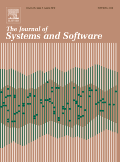
JOURNAL OF SYSTEMS AND SOFTWARE
Connecting Experts to Drive Software Innovation.JOURNAL OF SYSTEMS AND SOFTWARE, published by Elsevier Science Inc, is a premier academic journal that serves as a vital platform for the dissemination of cutting-edge research in the fields of software engineering, information systems, and hardware architecture. With an impressive impact factor and consistently ranking in the Q1 category across several relevant sectors, including hardware and architecture (ranked 33rd out of 177), information systems (ranked 72nd out of 394), and software (ranked 75th out of 407) as of 2023, this journal is recognized for its rigorous peer-review process and high-quality publications. Established in 1979, the journal has become an essential resource for researchers, professionals, and students looking to stay abreast of the latest advancements and emerging trends in systems and software. While the journal does not currently operate under an open-access model, it ensures wide visibility through its indexed publications and is dedicated to advancing scholarly discourse in computer science. With contributions from leading experts in the field, JOURNAL OF SYSTEMS AND SOFTWARE continues to shape the landscape of software and systems research.

EMPIRICAL SOFTWARE ENGINEERING
Empowering the software engineering community with data-driven discoveries.Empirical Software Engineering is a leading journal published by Springer, dedicated to advancing the science and practice of software engineering through empirical research. With an impressive impact factor in the Q1 quartile of the Software category and a Scopus ranking of #76 out of 407 journals, it occupies a prominent position within the field, attracting high-quality submissions from around the globe. Since its inception in 1996, the journal has provided a vital platform for disseminating critical findings that drive the evolution of software development methodologies and practices. While it is not an open-access journal, its rigorous peer-review process ensures that only the most impactful research reaches its readership, making it an essential resource for researchers, professionals, and students looking to stay at the forefront of software engineering innovations. Based in the Netherlands at Van Godewijckstraat 30, 3311 GZ Dordrecht, Empirical Software Engineering continues to set the standard for quality and significance in empirical studies of software systems and processes.

COMPUTING IN SCIENCE & ENGINEERING
Fostering Interdisciplinary Insights in Computing.COMPUTING IN SCIENCE & ENGINEERING, published by the IEEE Computer Society, is a leading journal dedicated to bridging the gap between computing principles and practical applications in the realms of science and engineering. With an impact factor that reflects its strong reputation, this journal is essential for researchers, professionals, and students seeking to explore the latest developments as well as interdisciplinary collaborations in computing. Since its inception in 1999, the journal has undergone many transformations to remain at the forefront of innovation, with a converged publication range extending through 2024. It is categorized in the Q2 quartiles for both Computer Science and Engineering, demonstrating its significance in these fields, as evidenced by its Scopus rankings, placing it in the top 30% of general engineering and computer science journals. As part of the open-access movement, readers are encouraged to engage with cutting-edge research, fostering a deeper understanding and application of computing in various scientific disciplines. Discover the latest findings and contribute to advancing knowledge in this dynamic and critical area of study.

Journal of Communications Software and Systems
Pioneering Research for a Connected FutureThe Journal of Communications Software and Systems, with ISSN 1845-6421 and E-ISSN 1846-6079, is a prominent platform for scholars and practitioners in the field of communications and software engineering, published by the esteemed Croatian Communications & Information Society. Since its establishment in 2006, this Open Access journal, based in Croatia, has committed to disseminating cutting-edge research and innovative solutions that bridge gaps between theory and practical application in the rapidly evolving domain of electrical and electronic engineering. With an impact factor that reflects its relevance, the journal holds significant rankings in both Electrical and Electronic Engineering (Q3) and Software (Q4) categories, according to the 2023 metrics, highlighting its essential role in advancing knowledge in these critical areas. The journal not only serves as a repository of knowledge but also encourages collaborations and discussions among researchers, professionals, and students alike, making it an indispensable resource for anyone looking to stay abreast of the latest developments and research trends from 2006 to 2024 and beyond.